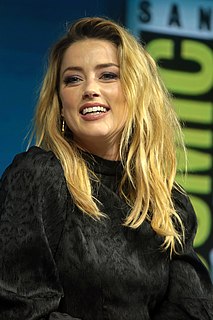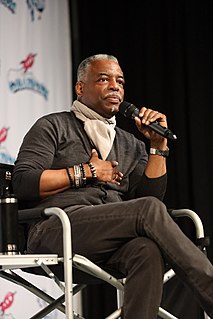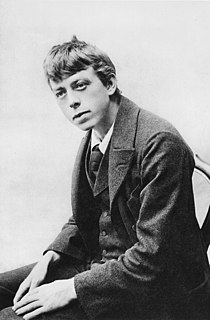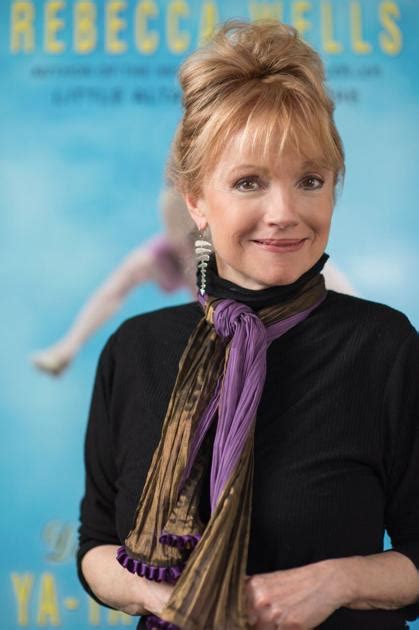A Quote by Amber Heard
I've made movies that were adaptations and I've been kind of frustrated by the process because, you know that old axiom, 'It's never as good as the book'? It's often true because nothing competes with your own imagination. When you're reading a book and you imagine something in your head, nothing's going to compete with that.
Related Quotes
I learned capacity for self-reflection very early, finding it through interior monologues that books are so good at and that visual media is so bad at because it's so boring - nothing's happening. In a book, you can be inside the narrator's head for 50 pages, and nothing needs to happen. Then you learn to be inside your own head without something needing to happen. It's a very good antidote to a crazy, restless, "what's next?" culture - that you can just be in your own head and nothing is happening except that this is a rich place. I love that.
You have to surrender to your mediocrity, and just write. Because it's hard, really hard, to write even a crappy book. But it's better to write a book that kind of sucks rather than no book at all, as you wait around to magically become Faulkner. No one is going to write your book for you and you can't write anybody's book but your own.
You can't accumulate anything, because anything you get you have to give away. We all know this. We watch our bodies go through the aging process. We know we came in here with nothing, and we know we're going to leave with nothing. There's nothing to own. There's nothing to get. The only thing you can do with your life is give it away. The best, happiest moments in your life are always when you're giving something away.
Your very eyes. How they have always been for me the command to obey, the inviolable and beautiful commandment. No, no, I'm not telling lies. Your appearance in the doorway! ... You have been my body's health. Whenever I have read a book, it was you I was reading, not the book, you were the book. You were, you were.
I'm very pessimistic about adaptations from one medium to another. I've got a very kind of primitive, Puritan view of it. I tend to think that if something was derived for one medium, then there's no real immediate reason to think that it's necessarily going to be as good or better if adapted into another one. There have been very good stage plays that have made some very good films. But there are not so many differences between the theater and the cinema as there are between the cinema and, say, reading a book or reading a comic.
the process of a book's coming to life is not fully complete until your imagination meets mine on the page. The words evoke pictures and something altogether new is created, something different from the limits of my own skills and imagination. Something that is a marriage between your heart, mind, and body - and mine.
You can never read your own book with the innocent anticipation that comes with that first delicious page of a new book, because you wrote the thing. You've been backstage. You've seen how the rabbits were smuggled into the hat. Therefore ask a reading friend or two to look at it before you give it to anyone in the publishing business. This friend should not be someone with whom you have a romantic relationship, unless you want to break up.
I feel lucky that I read so many books as a kid because I know that no matter how much I appreciate a book now, and I can love a book very much, it's never going to be that childhood passion for a book. There's some element, something special about the way they're reading books and experiencing books that's finite.
Imagination, it turns out, is a great deal like reporting in your own head. Here is a paradox of fiction-writing. You are crafting something from nothing, which means, in one sense, that none of it is true. Yet in the writing, and perhaps in the reading, some of a character's actions or lines are truer than others.
A writer writes a book. People read it. You don't know what they're reading, really. You read a review and think, "That is so inaccurate. You can't have been reading my book with any kind of attention, because that is all wrong, that's even the wrong name you're including there." But these reviewers have been diminished in importance, the work is so little respected. If you're reviewed by a real critic, by James Wood or Louis Menand, then you get something that is informed, interesting, and highly articulate. But the average review doesn't have that kind of depth anymore.




































